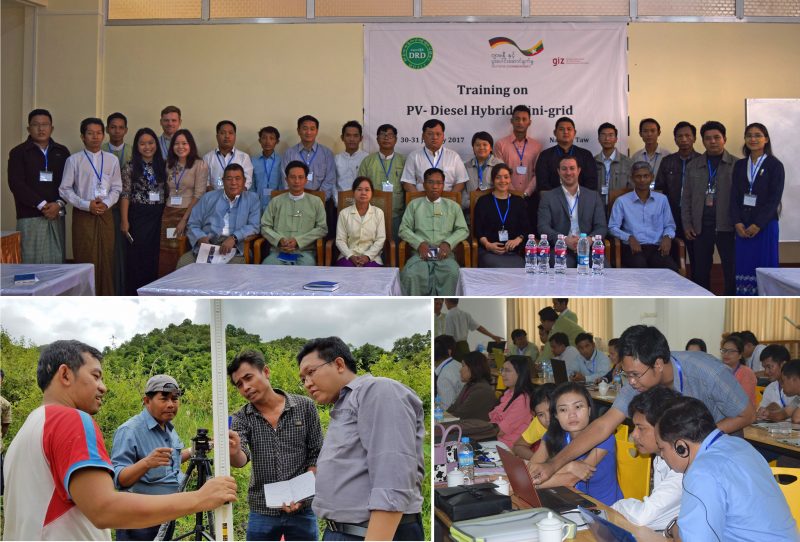
Myanmar’s National Electrification Plan (NEP) aims to electrify 7.2 million households and achieve universal access to electricity by the year 2030. The Department of Rural Development under the Ministry of Agriculture, Livestock and Irrigation (MoALI) is the leading government agency to implement the off-grid component of NEP with the help of the World Bank. As a recent development, DRD is increasing its efforts to promote decentralized mini-grids for rural electrification and announced its 1st Mini-grid Call for Proposals in June 2016. In July and August, the proposals were screened by an evaluation panel comprised of national experts from the DRD and international experts from GIZ and the World Bank. At the same time, GIZ Rural Electrification Programme provided the series of trainings to the private developers and supported the grants for the Feasibility Study for 6 private developers.
In January 2017, the commission awards went to five companies with selected project areas in 10 villages in central Myanmar, Ayarwaddy and Taninthari Divisions. The business models of the projects vary and capacities and of the 8 mini-grid projects are varied from 15 kW to 120 kW according to the sizes of the villages and about 5000 households and public institutions get access to electricity from the mini-grids for 24 hours with prepaid meter system. After completion of the projects, GIZ contributed the Expert for commissioning the projects in July 2017 and the very first public private partnership mini-grids are ready to launch for enabling access to electricity in rural Myanmar.
“Technical knowledge sharing programme by GIZ was really helpful in developing Myanmar Mini-grid Developers especially in the Business Model development. GIZ’s trainings on Load Profile Calculation & Homer Energy Application are very much effective for Local Developers. Since this is the very early stage of Business mini-grid system for local developers, I am sure that there were many weaknesses in Engineering and Financial sectors. However, it is hopeful that the future Mini-grid Systems will be better (Quality) and they are real advantageous system for rural areas. More and more technical trainings and business management trainings are in need.” One of the local mini-grid developers, Mr. Pyae Sone, Director of Pro Engineering Co. Ltd, (www.pecmyanmar.com) sent this letter of appreciation in the Planning Workshop -2017 (10 months after the project implementation).
About the Project
On behalf of Germany’s Federal Ministry for Economic Cooperation and Development (BMZ), GIZ is assisting Myanmar’s Department of Rural Development to implement National Electrification Project’s off-grid component with its specific focus on mini grids. The overall objective is to hone and strengthen the competence of relevant public and private stakeholders involved in Myanmar’s rural electrification process, enabling them to plan, develop and implement decentralized off-grid electrification solutions, primarily renewable energy-based mini grids. Learn more, here.
